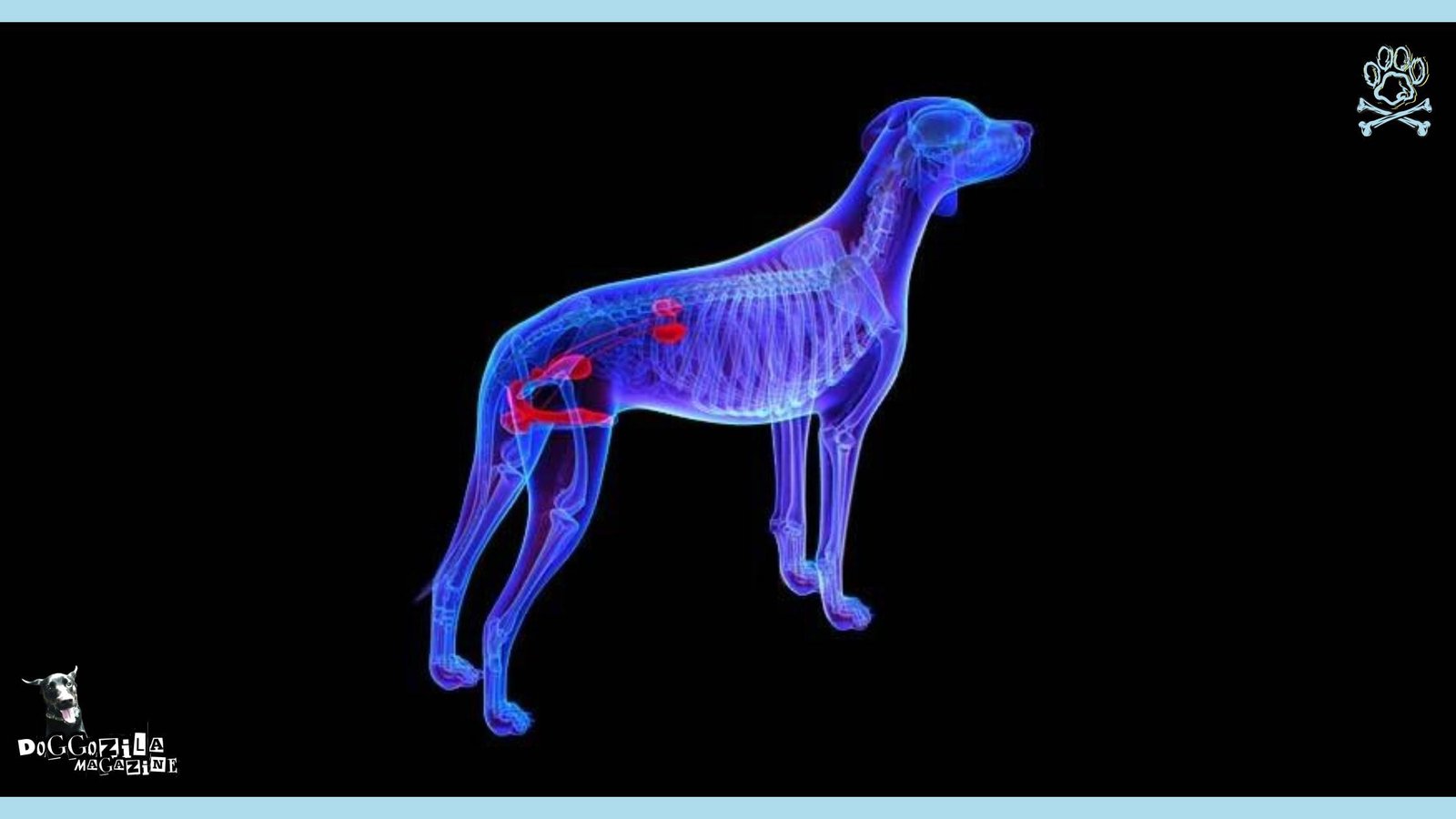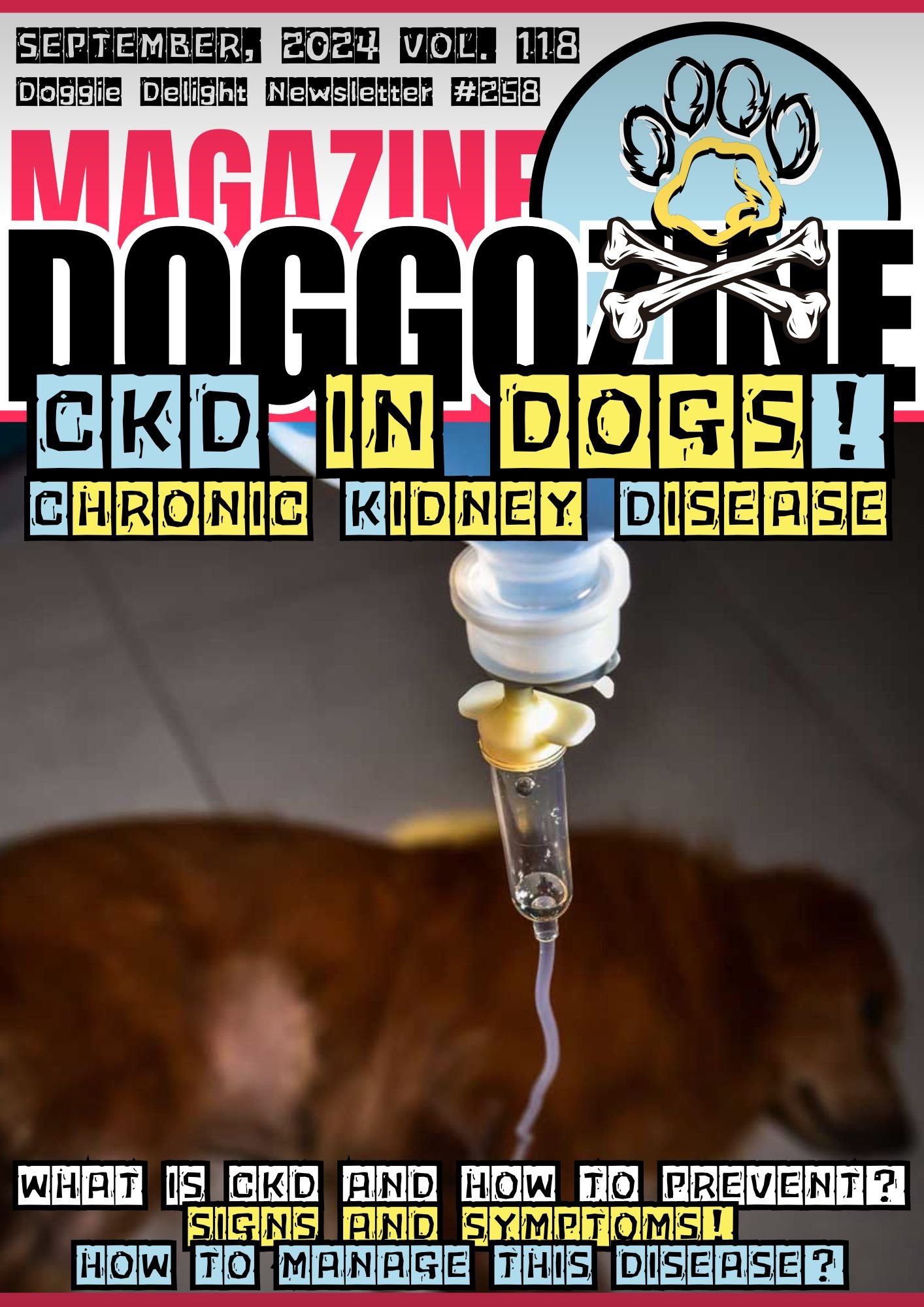
WHAT IS CHRONIC KIDNEY DISEASE IN DOGS – (CKD)?
Chronic Kidney Disease in dogs – (CKD) is a progressive condition characterized by the gradual deterioration of kidney function over an extended period. Unlike acute kidney disease, which manifests suddenly, CKD develops slowly, often without immediate symptoms.
How The Chronic Kidney Disease In Dogs Diminishes Kidneys Function?
The kidneys play a vital role in maintaining the overall health of the dog. Their function is to filter the waste from the bloodstream and balancing essential bodily fluids. As CKD progresses, the kidneys lose their ability to perform these crucial tasks efficiently. This will lead to a decline in general health.
The kidneys’ primary function is to remove toxins and waste materials from the body. In dogs suffering from CKD, this filtering capability diminishes slowly but consistently, accumulating harmful substances in the blood. Additionally, the kidneys are responsible for regulating blood pressure, producing red blood cells, and maintaining mineral balance. The deteriorating kidney function in CKD impacts these processes, resulting in systemic effects that can complicate the dog’s overall well-being.
Managing Chronic Kidney Disease In Dogs
One of the challenges of managing chronic kidney disease in dogs is its often insidious onset. Early stages of CKD may present with subtle signs or no visible symptoms. This is making difficult to detect it without routine veterinary check-ups. As the disease advances, symptoms become more apparent. You will notice increased thirst, frequent urination, weight loss, lethargy, and loss of appetite. These signs are indicative of the body’s struggle to cope with the reduced efficiency of the kidneys.
Understanding chronic kidney disease in dogs (CKD) underscores the importance of early detection and ongoing management. Regular veterinary visits and diagnostic screening can help identify CKD in its nascent stages. This potentially will slow its progression and improving the quality of life for affected dogs. By recognizing the gradual nature and systemic impact of CKD, vets and owners should work towards effective disease management. Supportive care for dogs experiencing this chronic condition is needed as well.
Functions of the Kidneys in Dogs
The kidneys in dogs perform a myriad of vital functions essential for maintaining overall health. One of their primary responsibilities is filtering and excreting toxins and waste products from the bloodstream. This purification process involves removing by-products of metabolism and other harmful substances. Then they are expelled from the body through urine. This detoxifying role is indispensable for preventing the accumulation of potentially dangerous compounds that can adversely affect a dog’s health.
In addition to filtering waste, the kidneys are instrumental in regulating fluid and electrolyte balance. They ensure that the levels of various electrolytes, like sodium, potassium, and chloride, remain within optimal ranges. Proper electrolyte balance is crucial for various physiological processes, including muscle function, nerve transmission, and maintaining cellular integrity.
The conservation of water and proteins is another critical function of the kidneys. By reabsorbing vital nutrients and water during filtration, they help ensure that the body retains necessary elements. This re-absorption process reduces the risk of dehydration and nutrient deficiency, which can be detrimental to the dog’s health.
The Importance Of Maintaining Kidney Health In Dogs
Maintaining blood pressure is an essential task performed by the kidneys. They achieve this by regulating the volume of blood and the concentration of salts in the bloodstream. Through the secretion of renin, an enzyme that influences blood vessel constriction and water re-absorption, the kidneys play a pivotal role in stabilizing blood pressure. This is fundamental for ensuring that all body tissues receive adequate blood supply and oxygen.
Lastly, the kidneys contribute to the production of red blood cells. They release erythropoietin, a hormone that stimulates the bone marrow to produce red blood cells. This is particularly important for maintaining adequate levels of hemoglobin, the protein that carries oxygen throughout the body. Insufficient red blood cell production can lead to anemia, a condition marked by decreased oxygen transport and resulting in fatigue and other health issues.
Understanding these diverse functions underscores the importance of maintaining kidney health in dogs. Proper kidney function is vital for overall well-being, and awareness of these roles can help dog owners recognize early signs of chronic kidney disease, facilitating timely intervention and treatment.
🔑 Key Points: The kidneys’ primary function is to remove toxins and waste materials from the body. The conservation of water and proteins is another critical function of the kidneys. Understanding chronic kidney disease in dogs (CKD) underscores the importance of early detection and ongoing management.
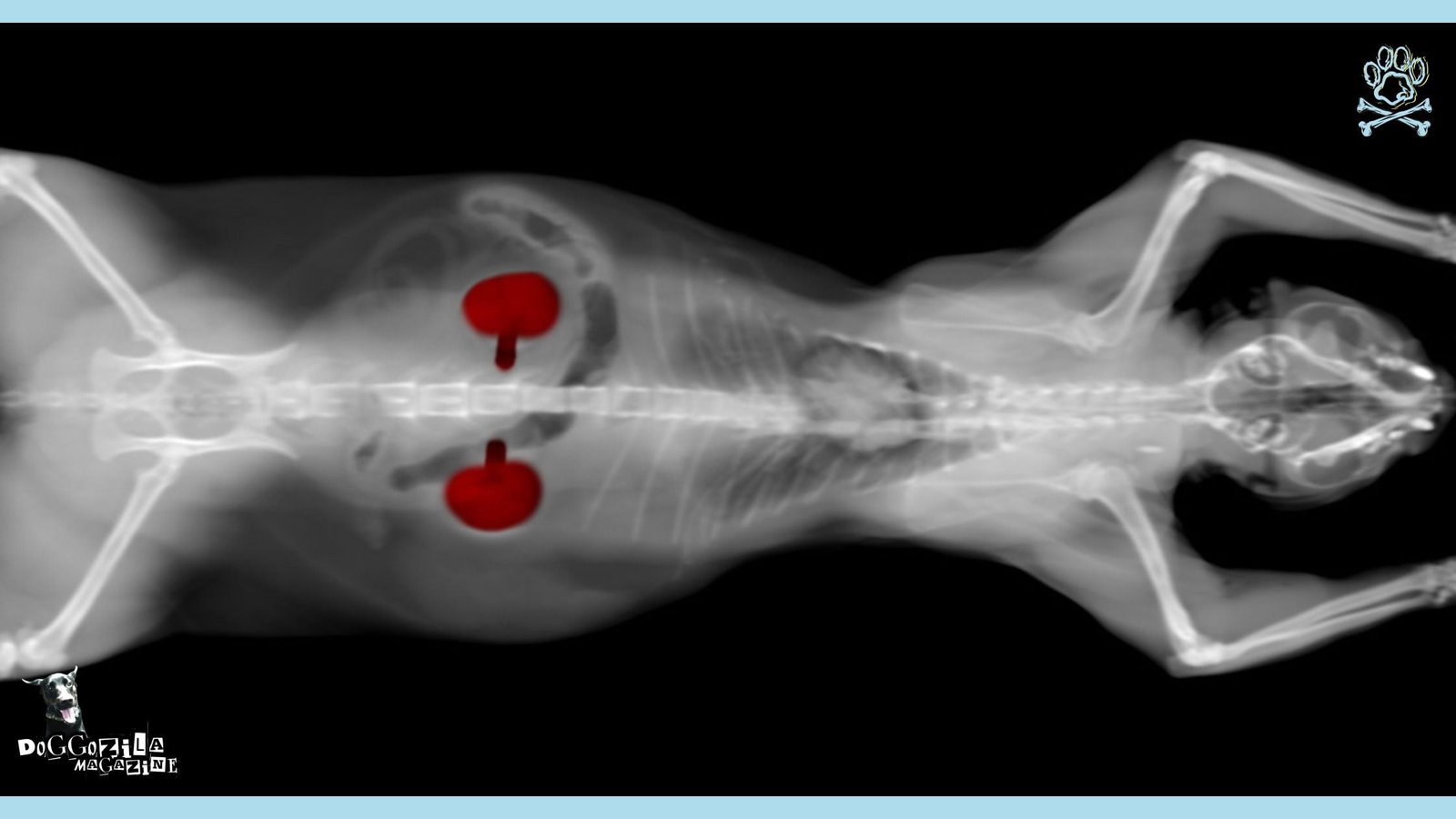
SYMPTOMS AND EARLY SIGNS OF CHRONIC KIDNEY DISEASE IN DOGS – CKD
Chronic Kidney Disease in dogs (CKD) is often marked by subtle symptoms that can be easily overlooked. Early detection is paramount to manage the progression and impact of the disease effectively. One of the most common early signs is an increase in thirst (polydipsia) and urination (polyuria). These symptoms occur because the kidneys lose their ability to concentrate urine, leading to excess water loss and thirst.
Watch For These Indicators Of Chronic Kidney Disease In Dogs
Weight loss is another significant indicator of CKD. As the disease progresses, the dog’s metabolism is disrupted, hindering nutrient absorption and leading to noticeable weight reduction. Additionally, dogs may exhibit lethargy or a decrease in physical activity. Lethargy results from the buildup of toxins in the bloodstream, as the kidneys fail to filter waste efficiently.
Decreased appetite is also observed in dogs with chronic kidney disease. This decline in appetite can be attributed to nausea caused by uremia – a condition where high levels of waste products accumulate in the blood. The combined effects of weight loss and decreased appetite can severely affect the overall well-being of the dog.
Early Detection Of Chronic Kidney Disease In Dogs Is Crucial
Other symptoms that may indicate the presence of chronic kidney disease include bad breath (halitosis), ulcers in the mouth, and a dull coat. Bad breath in dogs is caused by the presence of urea in the saliva, leading to an ammonia-like odor. Mouth ulcers further contribute to discomfort and difficulty in eating. A dull, dry coat may signify poor overall health and inadequate nutrition.
Regular veterinary check-ups are crucial for the early detection of CKD. Veterinarians can identify subtle changes in the dog’s health through routine blood and urine tests, even before symptoms become apparent. By catching CKD in its early stages, it is possible to implement dietary changes and medical interventions that can significantly enhance the dog’s quality of life and manage disease progression.
🔑 Key Points: Early detection is paramount to manage the progression and impact of the disease effectively. The combined effects of weight loss and decreased appetite can severely affect the overall well-being of the dog.

CAUSES AND RISK FACTORS FOR CHRONIC KIDNEY DISEASE IN DOGS – CKD
Chronic kidney disease in dogs (CKD) is a multifaceted condition influenced by various factors. Among these, genetic predisposition plays a significant role. Certain breeds are more susceptible to CKD due to inherited traits that affect kidney function. For instance, breeds like Bull Terriers, English Cocker Spaniels, and West Highland White Terriers are known to have a higher risk of developing CKD. This genetic vulnerability underscores the importance of understanding breed-specific health risks in canine care.
Senior Dogs Are Particularly Prone To Chronic Kidney Disease
Age is another critical determinant. As dogs age, their organs naturally experience wear and tear, which includes the kidneys. Senior dogs are particularly prone to CKD, as the cumulative effect of aging diminishes renal capacity over time. This age-related decline in kidney function necessitates vigilant health monitoring for older canine companions.
Underlying health conditions such as diabetes and hypertension are also instrumental in the development of CKD. Diabetes can cause damage to various organs, including the kidneys, through prolonged high blood sugar levels. Similarly, hypertension puts additional strain on the kidneys by impairing their ability to filter blood efficiently, potentially leading to chronic kidney disease. Thus, managing these conditions is paramount in mitigating the risk of CKD.
Awareness Of Genetic Predispositions Can Prevent Chronic Kidney Disease In Dogs
Environmental influences, notably exposure to toxins, further exacerbate the risk. Ingesting harmful substances such as antifreeze, certain medications, or poisonous plants can lead to acute kidney injury, which might transition into chronic kidney disease if not promptly addressed. Furthermore, long-term exposure to low levels of nephrotoxic substances can also contribute to gradually diminishing kidney function in dogs.
Understanding the causes and risk factors of CKD is crucial for implementing preventive strategies. Awareness of genetic predispositions, the impact of age, managing underlying health conditions, and minimizing environmental toxin exposure can all play substantial roles in safeguarding the renal health of our canine companions. Genetic testing for dogs allows for early identification of potential health issues, enabling timely intervention.
🔑 Key Points: Genetic predisposition plays a significant role for the Chronic Kidney Disease in Dogs. Senior dogs are particularly prone to CKD.
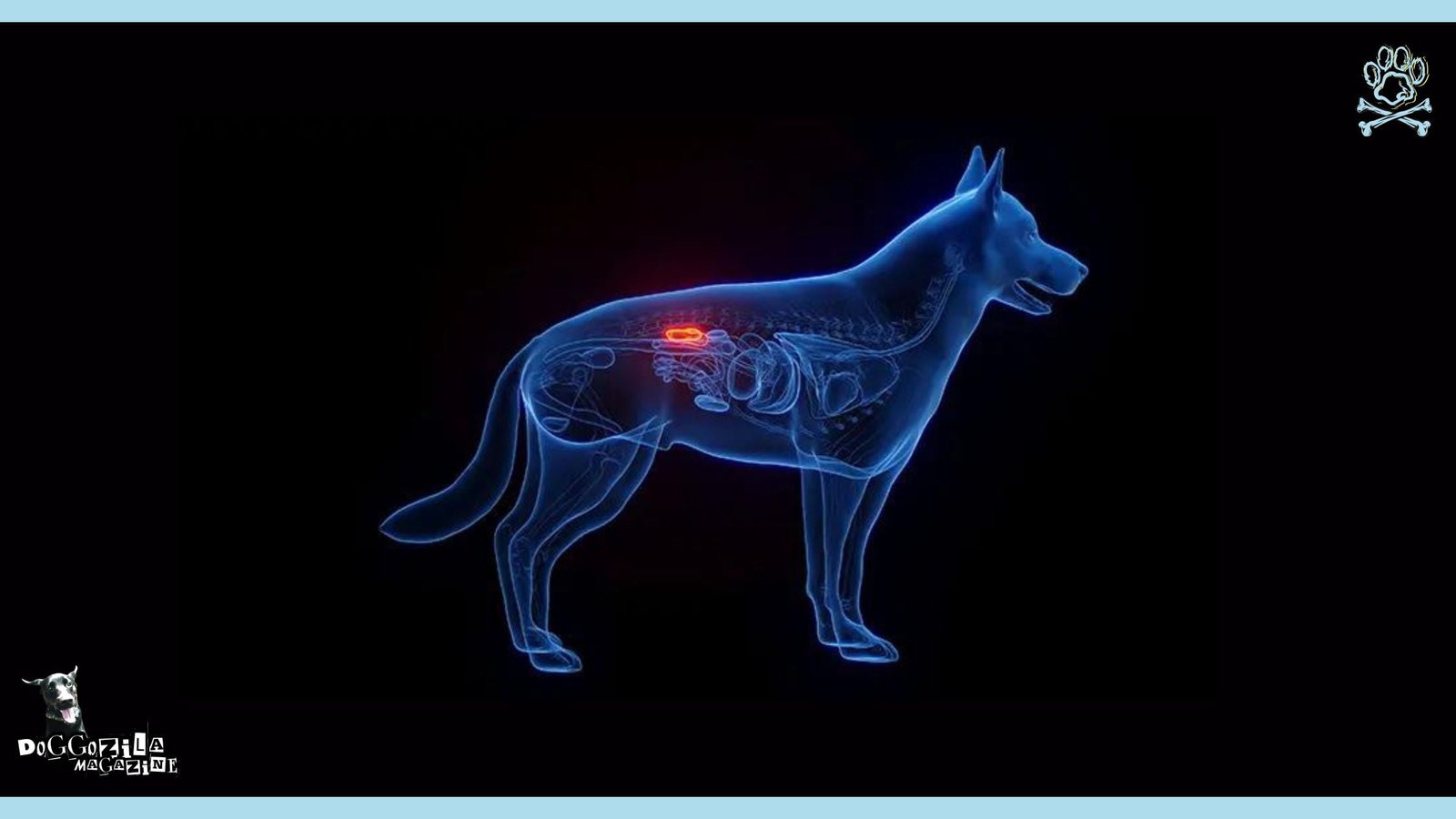
DIAGNOSIS AND STAGING OF CHRONIC KIDNEY DISEASE IN DOGS – CKD
Diagnosing chronic kidney disease in dogs – (CKD) is a multifaceted process that involves an array of tests and examinations to ascertain renal function and damage. Veterinary professionals typically initiate the diagnostic procedure with a thorough physical examination, capturing vital signs, noting weight, and observing physical symptoms such as dehydration or abnormal coat texture. However, definitive diagnosis requires more specialized tests.
Blood Tests And Urine Analysis Are Crucial Tools In Diagnosing Chronic Kidney Disease In Dogs
Blood tests are fundamental in the diagnostic process for CKD, primarily focusing on serum creatinine and blood urea nitrogen (BUN) levels. Elevated creatinine and BUN are often indicative of reduced kidney function, though these markers can also be influenced by other factors. Electrolytes such as potassium, phosphorus, and calcium are also measured, as imbalances can arise due to impaired renal function.
Urine analysis is another crucial tool in diagnosing CKD. This test evaluates urine concentration and the presence of protein, glucose, or blood in the urine. The urine specific gravity (USG) measurement assists in determining the kidney’s ability to concentrate urine, with persistently low USG being a hallmark of CKD. Additionally, the urine protein-to-creatinine ratio (UPC) can provide insight into the severity of proteinuria, a condition often seen in CKD cases.
Staging System For Chronic Kidney Disease In Dogs By IRIS
Imaging techniques, including ultrasound and radiography, offer visual representation of the kidneys, allowing veterinarians to assess kidney size, structure, and the presence of any abnormalities such as cysts or stones. Ultrasound can also help detect changes in renal parenchyma and aid in diagnosing chronic conditions.
The International Renal Interest Society (IRIS) has developed a staging system for CKD in dogs, which is instrumental in assessing disease severity and progression. This staging is based primarily on serum creatinine levels, with additional consideration given to symmetric dimethylarginine (SDMA) levels, blood pressure, and proteinuria. The IRIS stages range from Stage 1, where renal damage is mild and not necessarily symptomatic, to Stage 4, which signifies severe renal dysfunction with significant clinical signs.
Diagnosing and staging CKD in dogs ensures that veterinarians can devise a tailored management plan, optimizing care for each individual patient. Thorough and accurate diagnosis paves the way for targeted treatments and informs owners about the prognosis and potential lifestyle adjustments necessary for managing their dog’s CKD.
🔑 Key Points: Blood tests are fundamental in the diagnostic process for chronic kidney disease in dogs. Urine analysis is another crucial tool in diagnosing CKD. Ultrasound can also help detect changes in renal parenchyma and aid in diagnosing chronic conditions.
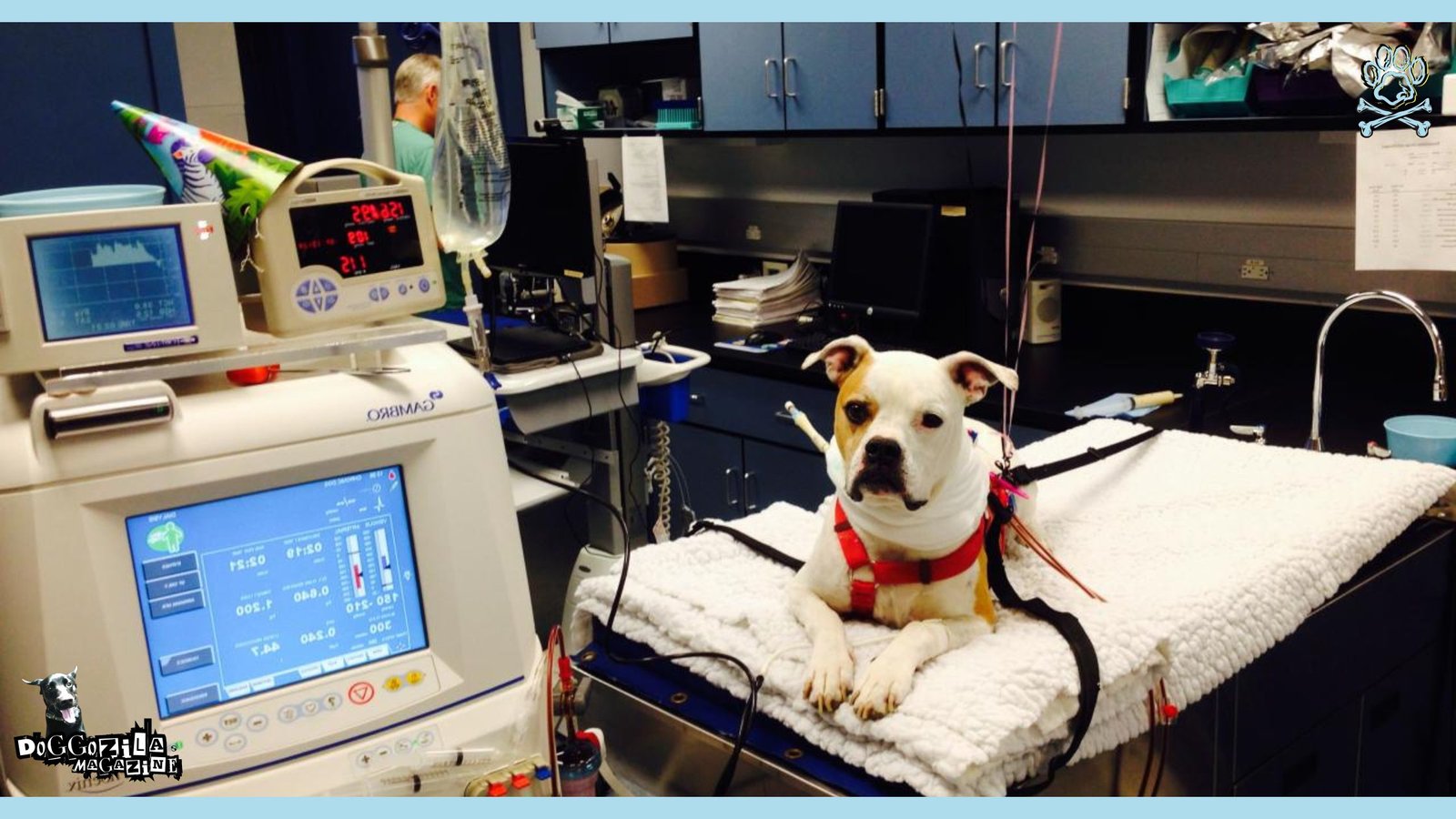
MANAGEMENT AND TREATMENT OPTIONS
Chronic Kidney Disease (CKD) in dogs necessitates a multifaceted approach to management and treatment, aiming to slow disease progression, alleviate symptoms, and enhance the quality of life. Given the complexity of CKD, the treatment regime is often tailored to the individual dog’s needs, encompassing dietary changes, medication, fluid therapy, and lifestyle adjustments.
Dietary Modifications and Medications
One of the primary interventions for managing CKD in dogs is through dietary adjustments. Veterinarians often recommend therapeutic diets that are low in protein and phosphorus, as these nutrients can exacerbate kidney damage. Diets rich in Omega-3 fatty acids and antioxidants are beneficial due to their anti-inflammatory properties. It’s crucial to transition to these diets gradually to ensure the dog finds them palatable and can adjust without gastrointestinal issues.
Medications play a pivotal role in managing CKD symptoms and slowing progression. Commonly prescribed drugs include angiotensin-converting enzyme (ACE) inhibitors to reduce protein loss in urine and control high blood pressure, and phosphate binders to manage elevated phosphorus levels. Additionally, medications that treat associated health issues, such as anti-nausea drugs and appetite stimulants, can be essential in maintaining the dog’s overall well-being.
Fluid Therapy and Lifestyle Changes
Dehydration is a significant concern in dogs with CKD. Administering fluid therapy, whether through intravenous (IV) fluids at the veterinarian’s office or subcutaneous (under the skin) fluids at home, can help mitigate dehydration and maintain normal electrolyte levels. Hydrotherapy can be a life-saving measure, especially in advanced stages of CKD.
Implementing lifestyle changes is equally important. Encouraging mild to moderate exercise helps maintain muscle mass and general health. Monitoring the dog’s hydration status, weight, and overall condition regularly enables timely detection and management of any complications. Owners should also minimize stressors and ensure the dog has a comfortable, low-stress environment to help maintain stability in their condition.
Overall, the management and treatment of CKD in dogs require a holistic approach and regular veterinary consultations to adjust and optimize the care plan as the disease progresses. By employing these strategies, owners can significantly improve their pet’s quality of life, ensuring they remain comfortable and content.
